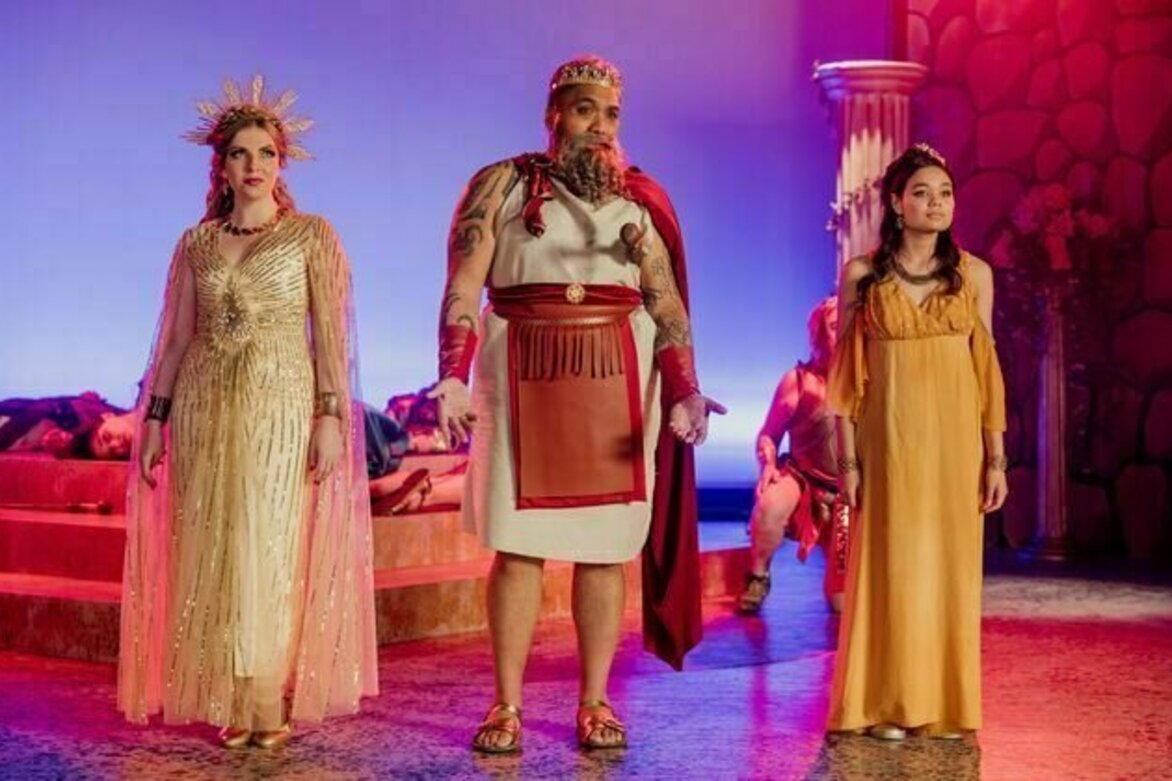New NZ TV series Happiness gives us an engaging musical peak behind the amateur theatre curtain
The Conversation
02 Apr 2025

The last few decades have seen many attempts to make musical TV shows.
Some of them applied the aesthetics of musicals (where people spontaneously sing and dance) to the television form, such as the recent cult series Schmigadoon! (2021-23) and the less successful medieval-set Galavant (2015-16).
Others have foregrounded music by being backstage musicals, or "backstagers", about the creation of musicals. Glee (2009-15), about the American high school show choir scene, was the most successful of these. It led to imitators like Smash (2013-14), about a Marilyn Monroe musical; 2018's Rise, a major flop about a high school producing Spring Awakening; and, my favourite, High School Musical: The Musical: The Series (2019-23), a meta-fictional take on the Disney musical canon.
Backstagers have usually been more successful and also easier to produce than true through-and-through musicals for television, as they place their stories in settings that allow for the more or less "natural" presence of song and dance as part of the shows being staged. This acts as a bridge for audience members who might baulk at the singing and dancing fantasies inherent to the musical genre.
With their new show Happiness, Kip Chapman and Luke Di Somma have created a welcome New Zealand answer to this style of musical TV show.
Charlie (Harry McNaughton) has returned from New York to his hometown of Tauranga, having been dismissed from helming a Broadway revival of Cats.
In a desperate attempt to demonstrate competency for a renewal of his visa - and to please his mum Gaye (Rebecca Gibney) - he decides to help out the local amateur musical theatre society Pizzaz ("the finest large-scale yet boutique classical musical theatre company in Tauranga") with their latest production, an original musical called The Trojan Horse, based on the Iliad.
The first number in the first episode is an airport flash mob set to Backstreet's Back, which Charlie's mum has arranged to welcome her son home. While the nod to the Backstreet Boys is fun, it would have been more effective to start the show with an original musical number. As many writers of musicals have argued, one has to set up the "rules" of a musical in the first ten minutes, otherwise there is a risk of confusing the audience.
This number hints that Happiness might be a jukebox musical, but thankfully that is not the case. On the contrary, it has a whole set of new songs.
The score that Luke Di Somma has written for the show-within-the-show is a convincing pastiche of standard musical theatre styles. There is lots of Les Miserables high drama, Chicago showbiz razzle-dazzle, and Dear Evan Hansen pop balladry.
The songs carefully tread the line between portraying the well-meaning amateurishness of The Trojan Horse and being clever and competent enough in themselves to retain the audience's interest.
This collection of stylistic nods, at least among the songs heard in the first two episodes I was able to preview, is typical of musical theatre writing as it is currently done. Di Somma has nicely balanced his own personal style (on display in earlier works like That Bloody Woman and The Unruly Tourists) with the needs of Happiness's pastiche to create a score that wouldn't be out of place on any musical stage.
Happiness takes an affectionate look at community musical theatre, with details like the mismatched teacups and homemade lamingtons available during rehearsal breaks, the amusingly stuffed prop and costume store, and the mix of ages and experiences in the cast.
Backstagers are good fodder for TV as they can involve a wide variety of eccentric characters among the show's cast and crew. The first episode does a good job of introducing them all. The usual backstage tropes are all there, like the young ingenue overshadowed by the haughty star and the put-upon music director (Marshayla Christie) trying to get her voice heard by the out-of-touch stage director (Peter Hambleton).
This all makes Happiness fairly predictable, but it is also well observed and always engaging. A specific New Zealand spin comes with details such as the look of the the barn-like space that houses Pizazz, the Number Eight Wire attitude shown by the crew (they have $167 to make the Trojan Horse prop), and poking a bit of fun at the Kiwi accent. In one scene, Charlie suggests that local star Jacqui (Jessie Lawrence) as Helen of Troy might try it without the "Classical" English accent - which only ends up strengthening her Kiwi vowels.
I hope that Warner Discovery, which produces the show, will distribute it abroad. Happiness paints New Zealand musical theatre talent in a positive light and shows what the locals can do, while also being very entertaining in its own right. It is a welcome addition to the "let's put on a show" backstager genre.
Happiness is available on Three and ThreeNow from tomorrow.
